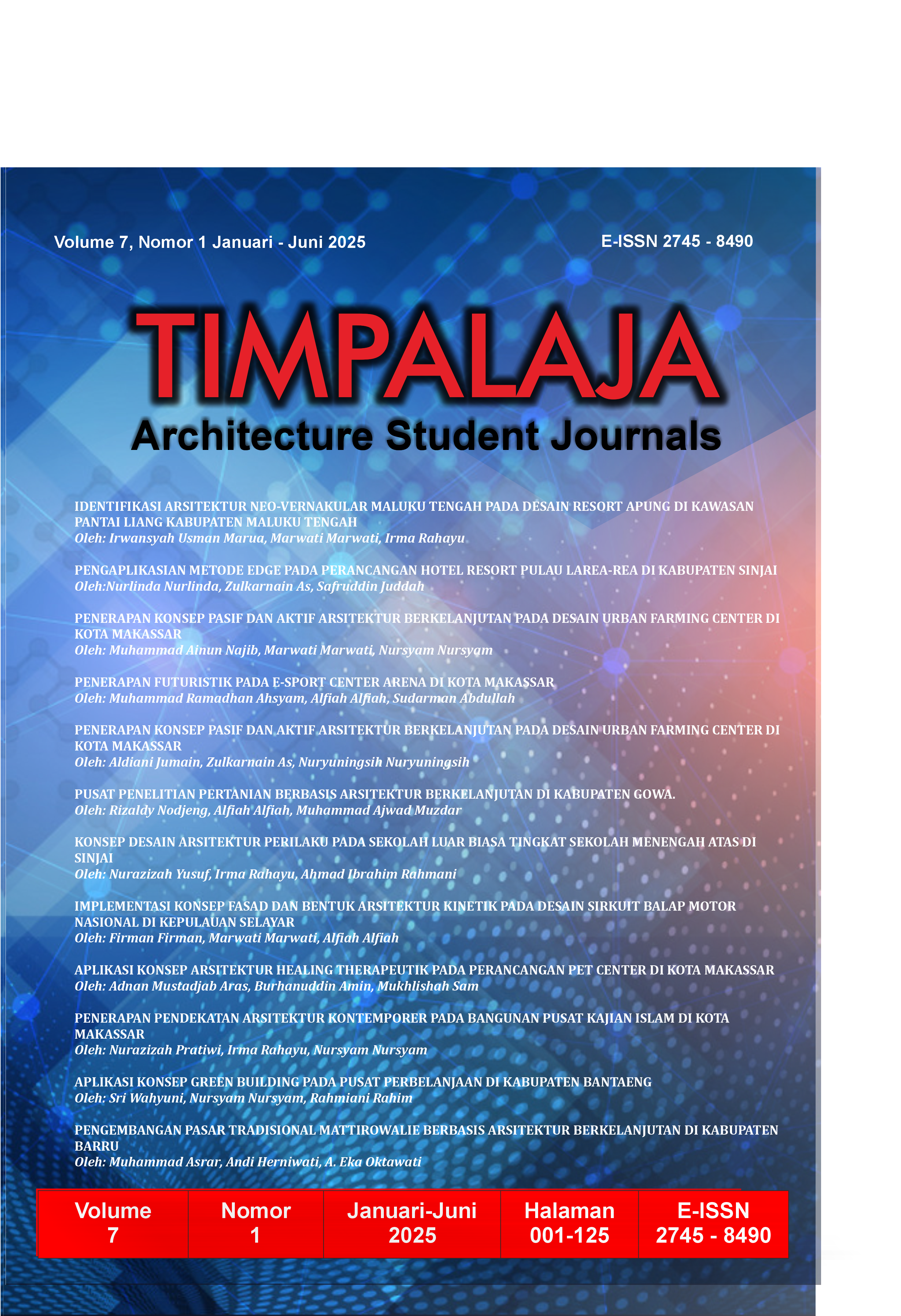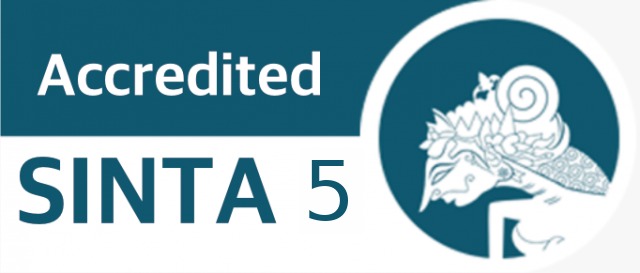Penerapan Konsep Pasif dan Aktif Arsitektur Berkelanjutan pada Desain Urban Farming Center Di Kota Makassar
DOI:
https://doi.org/10.24252/timpalaja.v7i1a3Keywords:
Urban Farming, Passive Design, Active DesignAbstract
Urban farming is a type of agriculture practised by city dwellers to produce organic, healthy food free from chemicals, aiming to improve life quality through healthy food consumption. However, urban residents often choose unhealthy lifestyles and consume fewer vegetables. The most common barriers are categorised as technical and non-technical. This study investigates how sustainable architectural concepts can be applied both passively and actively in the design of the Urban Farming Centre in Makassar. Data was collected through field observations, interviews, and literature research, then analysed using synthesis methods to develop an appropriate design concept. The study indicates that urban farming centres can use sustainable passive and active designs to enhance energy efficiency, thermal comfort, and ecological sustainability. Passive designs, such as building orientation and natural shading, save energy, while active designs, such as solar panels and agricultural technologies, support energy sustainability and food security. According to this research, the Urban Farming Centre can function as a food production facility and as an educational hub, teaching farmer groups and the community to enhance food security in line with the region's potential.
References
Ardiani, Y. M. (2015). Sustainable Architecture; Arsitektur Berkelanjutan.
Damia, F. N., & Raidi, I. S. (2021). Redesain Avros Park Medan Sebagai Objek Rekreasi Edukasi Perkebunan dan Sungai di Kota Medan Dengan Pendekatan Arsitektur Berkelanjutan. Universitas Muhammadiyah Surakarta.
Hastuti, D. R. D. (2021). Pertanian Kota dalam Perspektif Pangan, Ekonomi, Estetika, dan Lingkungan di Kota Makassar. Universitas Hasanuddin.
Karyono, T. H. (2006). Kota Tropis Hemat Energi: Menuju Kota Yang Berkelanjutan Di Indonesia. 1, 63–71.
Munizu, M., Sumardi, & Tajuddin, I. (2017). Kajian Ekonomi Program Bank Sampah di Makassar (Study on Economic Benefit of Garbage Bank Program in Makassar). Jurnal Inovasi Dan Pelayanan Publik Makassar, 1(1), 1–13.
Puspitaningrum, F., & Istiqomah, N. (2021). Kemandirian Pangan Berbasis Urban Farming. Edukasi IPS, 5(1), 41–52.
Rahman, S., & Aryanti, E. (2015). Kelompok Tani Sayuran Organik di Kota Makassar (IbM Farmer Groups of Organic Vegetable in Makassar) Ringkasan Eksekutif. Majalah Aplikasi Ipteks NGAYAH, 6(1).
Sihgiyanti, V. J. (2016). Evaluasi Implementasi Program Urban Farming Oleh Dinas Pertanian Di Kota Surabaya. Kebijakan Dan Manajemen Publik, 4(2), 264–272.
Steele, J. (1997). Sustainable Architecture: Principles, Paradigms, and Case Studies. McGraw-Hill.
Widayana, G. (2012). Pemanfaatan Energi Surya. Jurnal Pendidikan Teknologi Dan Kejuruan, 9(1).
Downloads
Published
How to Cite
Issue
Section
License
Copyright (c) 2025 Muhammad Ainun Najib, Marwati Marwati, Nursyam Nursyam

This work is licensed under a Creative Commons Attribution-ShareAlike 4.0 International License.
By submitting your manuscript to our journal, you are following Copyright and License



















